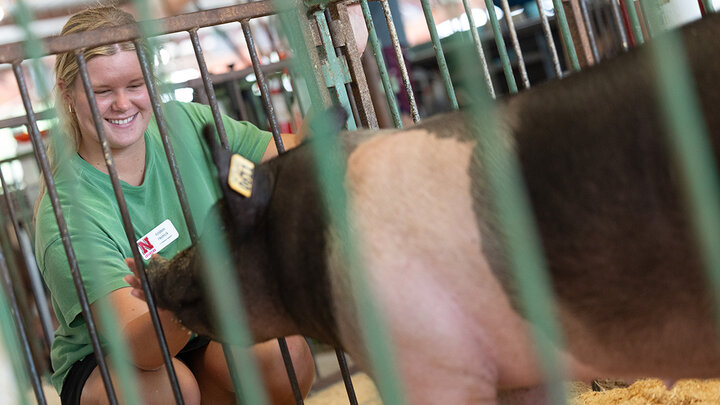The Nebraska Water Center (NWC), in partnership with the University of Nebraska-Lincoln’s School of Natural Resources, will begin its annual Spring Water Seminar Series this February. The 2023 Series will highlight hot topics in Nebraska Water. The Series is open to the public and will be held at Hardin Hall on the University of Nebraska-Lincoln East Campus at 3:30 p.m. every other Wednesday.
In addition, the series – with writing assignments and in-class, student-led discussions on alternate weeks – doubles as a one-credit hour undergraduate/graduate course listed under NRES/AGRO/GEOG/GEOL 484/884 and WATS 484. Students interested in registering should be junior level or above.
The 2023 seminars feature an extraordinary slate of specialists and researchers. They each bring unique expertise to their topic, providing attendees with the most up to date information available.
Established in 1968, the series provides a forum to increase awareness and allow for meaningful conversation regarding these issues. The series is a cornerstone of NWC’s mission to help the University of Nebraska become an international leader in water research, teaching, extension and outreach.
This year lectures include:
- February 1 - Eleanor Rogan, University of Nebraska Medical Center, Water Quality and Health
- February 15 - Jesse Bell, University of Nebraska Medical Center, Human Health and Climate
- March 1 - Harshanee Jayasekera, Daugherty Water for Food Institute, the Value of Water Quality
- March 22 - Tonya Haigh, Kelly Smith, Deb Bathke, and Cody Knutson, National Drought Mitigation Center, Panel Discussion on Social Sciences and Drought
- April 5 - Paul Bradley, U.S. Geological Survey, Point of Use – Drinking Water Research Portfolio
- April 19 - David Walters, U.S. Geological Survey, Ecological Subsidies as Framework for Assessing Contaminant Fate, Transport, and Exposure Across Ecosystem Boundaries
- May 3 – Laura McConnell, Bayer Crop, The Role of Environmental Chemistry in Pesticide Risk Assessment: The Path to Registration and Real World Case Studies


